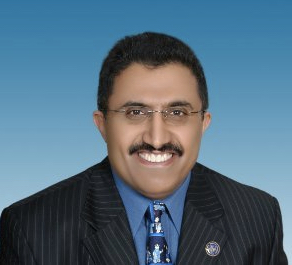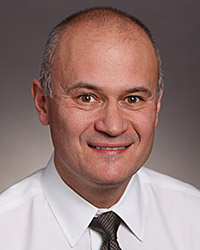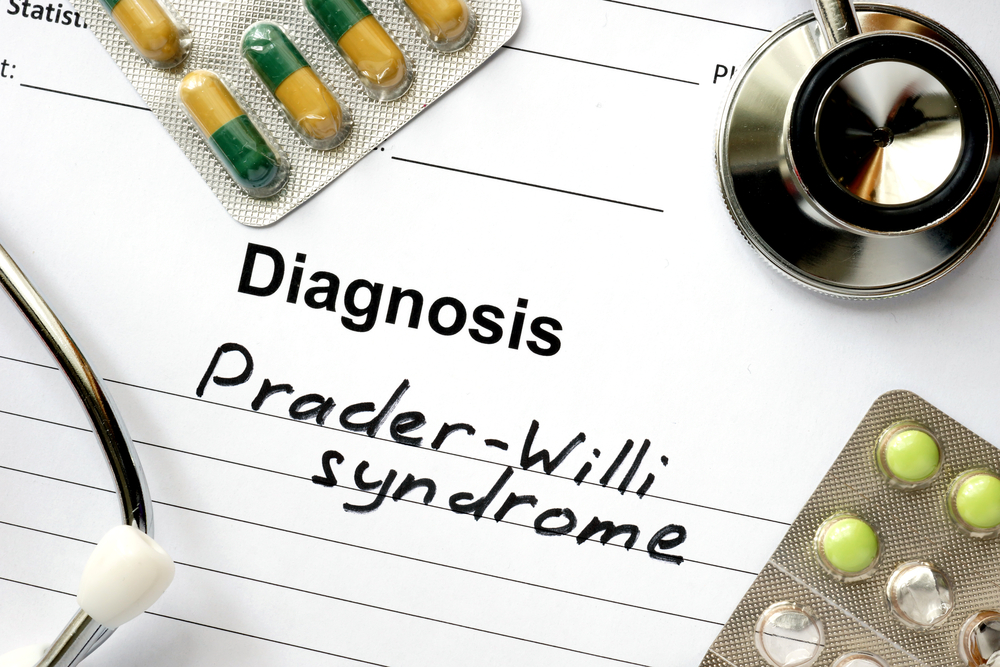Researchers in a new study published in the journal Surgery for Obesity and Related Disease have found that bariatric surgery, specifically laparoscopic sleeve gastrectomy (LSG), resulted in substantial weight loss with no apparent adverse effect on growth in a small group of severely overweight patients with Prader Willi Syndrome (PWS) — a rare genetic disorder that occurs in approximately one out of every 15,000 births that results in extreme obesity for some patients. While bariatric surgery is considered controversial for PWS, the research team say they are encouraged by their positive results.
First described by Swiss doctors Andrea Prader, Alexis Labhart and Heinrich Willi in 1956 based on clinical characteristics observed in nine children they had examined, Prader Willi Syndrome affects males and females with equal frequency and affects all races and ethnicities. PWS is recognized as a common genetic cause of childhood obesity.
According to the Foundation For Prader-Willi Canada, PWS is caused by a lack of active genetic material in a particular region of chromosome 15 (15q11-q13). Normally, individuals inherit one copy of chromosome 15 from their mother and one from their father. The genes in the PWS region are normally only active on the chromosome that came from a person’s father. In PWS, the genetic defect causing inactivity of chromosome 15 can occur in one of three ways:
PWS by Deletion
Most often, part of the chromosome 15 that was inherited from the person’s father is missing, or deleted, in this critical region. This small deletion occurs in approximately 70% of cases and usually is not detectable with routine genetic analysis such as amniocentesis.
PWS by UniParental Disomy (UPD)
Another 30% or so of cases occur when an individual inherits two chromosome 15’s from their mother, and none from the father. This scenario is termed uniparental disomy (UPD).
PWS by Imprinting Mutation
Finally, in a very small percentage of cases, a small genetic mutation in the Prader-Willi region causes the genetic material in that area to be inactive.
According to the U.S. National Institutes of Health National Library of Medicine, and the Foundation For Prader-Willi Canada, PWS is characterized by weak muscle tone (hypotonia), feeding difficulties, poor growth, and delayed development. Beginning in childhood, affected individuals develop an insatiable appetite, which leads to chronic overeating (hyperphagia) and obesity. Some people with Prader-Willi syndrome, particularly those with obesity, also develop type 2 diabetes mellitus (the most common form of diabetes).
People with Prader-Willi syndrome typically also have mild to moderate intellectual impairment and learning disabilities with behavioral problems common, including temper eruptions, stubbornness, and compulsive behavior such as picking at the skin. Sleep abnormalities can also occur. Additional characteristics of the disorder include distinctive facial features such as a narrow forehead, almond-shaped eyes, and a triangular mouth; short stature; and small hands and feet. Some people with Prader-Willi syndrome have unusually fair skin and light-colored hair. Both affected males and affected females have underdeveloped genitals. Puberty is delayed or incomplete, and most affected individuals are unable to have children (infertile).
PWS sufferers often have a constant desire to consume food driven by a permanent feeling of hunger, which can easily lead to dangerous weight gain, and indeed obesity is a leading cause of complications and death in children suffering from PWS, and related problems such as obstructive sleep apnea, dyslipidemia (abnormally high cholesterol or fats. In fact, in PWS obesity is a leading cause of death and related problems such as obstructive sleep apnea, dyslipidemia (abnormally high cholesterol or fats in the blood), hypertension, and diabetes mellitus, yet few effective treatment options are available for these patients.
The Surgery for Obesity and Related Disease paper referred to above is entitled “Laparoscopic sleeve gastrectomy in children and adolescents with Prader-Willi syndrome: a matched-control study“ (doi:10.1016/j.soard.2015.07.014 ) and is coauthored Aayed R. Alqahtani, M.D., R.C.S.C.S., F.A.C.S. and Awadh R. Al Qahtani, M.D., M.Sc., F.R.C.S.C., and Mohamed O. Elahmedi of the King Saud University College of Medicine Department of Surgery, at Riyadh, Saudi Arabia; Jaehoon Lee, Ph.D of the Texas Tech University College of Education at Lubbock, Texas; and Merlin G. Butler of the Departments of Psychiatry & Behavioral Sciences and Pediatrics at the University of Kansas Medical Center, in Kansas City, Kansas.
The study was carried out at King Saud University College of Medicine, an academic center with a standardized care pathway for pediatric bariatric surgery, where the team of co-investigators examined weight loss and growth after LSG in 24 children and adolescents with PWS aged between five and 18 years old and compared the results with patients without the syndrome, who were matched for age, gender, and body mass index (BMI).
Clinical data of all PWS patients who underwent LSG were abstracted from the investigators’ prospective database, which included all pediatric patients who underwent bariatric surgery. These data were then compared with a 1:3 non-PWS group matched for age, gender, and body mass index (BMI). Data for up to 5 years follow-up were analyzed.
The 24 PWS patients participating in the study had a preoperative BMI of 46.2±12.2 kg/m2. All PWS patients had obstructive sleep apnea (OSA), 62% had dyslipidemia, 43% had hypertension, and 29% had diabetes mellitus. One PWS patient was readmitted 5 years after surgery with recurrence of OSA and heart failure. No other readmissions occurred, and there were no reoperations, postoperative leaks, or other complications. No mortality or major morbidity was observed during the five years of follow-up. Among the PWS patients who reached their follow-up visit time points the total follow-up rate was 94.1%, whereas in the non-PWS group it was 97%. All patients who missed a follow-up visit were subsequently seen in future follow-ups, and no patient was lost to follow-up in either group.
The investigators conclude that PWS children and adolescents underwent effective weight loss and resolution of co-morbidities after LSG, without mortality, significant morbidity, or slowing of growth and maintain that LSG should be offered to obese PWS patients with heightened mortality particularly because no other effective alternative therapy is available.
 “Questions are raised regarding the safety of bariatric surgery in PWS patients, the degree and sustainability of weight loss and resolution of related health problems, long term results, as well as the effect on growth and skeletal maturity. These concerns stem from the fact that the pathophysiology of obesity in those patients is unique and differs from what is observed in the general population,” explains lead investigator Aayed R. Alqahtani, MD, RCSCS, FACS, of the Department of Surgery at King Saud University College of Medicine, at Riyadh, Saudi Arabia.
“Questions are raised regarding the safety of bariatric surgery in PWS patients, the degree and sustainability of weight loss and resolution of related health problems, long term results, as well as the effect on growth and skeletal maturity. These concerns stem from the fact that the pathophysiology of obesity in those patients is unique and differs from what is observed in the general population,” explains lead investigator Aayed R. Alqahtani, MD, RCSCS, FACS, of the Department of Surgery at King Saud University College of Medicine, at Riyadh, Saudi Arabia.
“Our study indicates that bariatric surgery should be recommended for pediatric PWS patients; our results are unmatched by any other treatment. All of our patients experienced significant weight loss following LSG. There were no deaths or major complications, no significant morbidity, and no slowing of growth,” Dr. Alqahtani reports. “Most of the weight loss occurred within the first two years after surgery and patients successfully reduced food intake and felt satiated by smaller amounts of food due to reduced stomach capacity.”
 Not everyone interprets these results as positively, however. “Although the use of surgery in pre-adolescents with special needs is uncharted territory, the results are of interest, particularly since there has been very limited experience with modern bariatric procedures in this patient population,” comments Dr. Thomas Inge, a professor of surgery and pediatrics at Cincinnati Children’s Hospital Medical Center. “While it is clearly not possible to make treatment recommendations for use of surgery in this complex population without further research to examine the physiologic impact, these initial findings should at least prompt a new conversation about prospective and more comprehensive studies to examine safety and efficacy of modern weight loss procedures and newer medications in patients with PWS.”
Not everyone interprets these results as positively, however. “Although the use of surgery in pre-adolescents with special needs is uncharted territory, the results are of interest, particularly since there has been very limited experience with modern bariatric procedures in this patient population,” comments Dr. Thomas Inge, a professor of surgery and pediatrics at Cincinnati Children’s Hospital Medical Center. “While it is clearly not possible to make treatment recommendations for use of surgery in this complex population without further research to examine the physiologic impact, these initial findings should at least prompt a new conversation about prospective and more comprehensive studies to examine safety and efficacy of modern weight loss procedures and newer medications in patients with PWS.”
Another paper published in the journal Surgery for Obesity and Related Disease, entitled “Comparative Physiogenomic Analyses of Weight Loss in Response to Two Modes of Bariatric Surgery: Demonstration with Candidate Neuropsychiatric and Cardiometabolic Genes“ (published online 26 September 2015, doi:10.1016/j.soard.2015.09.019)”> is coauthored by Richard L. Seip, Ph.D., Pavlos Papasavas, M.D., Andrea Stone, B.S., Stephen Thompson, M.S., Janet Ng, Ph.D., Darren S. Tishler, M.D., and Gualberto Ruaño, M.D., Ph.D, representing the Genetics Research Center and other departments of the Hartford Hospital, at Hartford, Connecticut, Genomas Inc. also of Hartford, and the University of Connecticut School of Engineering at Storrs, Connecticut.
The coauthors note that surgical weight loss response is variable, with sub-optimal outcomes in some patients. They hypothesize that genetic biomarkers may be related to weight change, and suggest that information derived from patient DNA may be useful to predict surgical weight loss outcomes and guide selection of surgical approach.
Sources:
Elsevier Science Direct
Surgery for Obesity and Related Diseases
U.S. National Institutes of Health National Library of Medicine
Foundation For Prader-Willi Canada
Prader-Willi Syndrome Association


